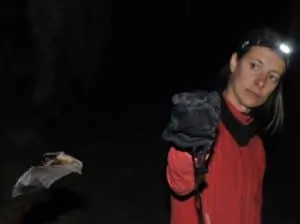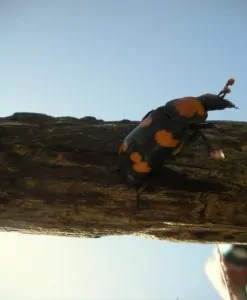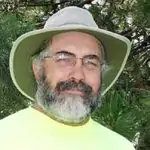

Read the NSPS – EG Technical Bulletin
Article by Cheryl Moran, CHMM
Technological advances in traditional printing and the advent of digital printing can make it more challenging to know when you need an air permit and which permit is best for your operations.
There are two main activities that may trigger air permitting – construction and operation; each of these comes with its own permitting requirements. Always check to see if you are required to apply for a construction permit before bringing new equipment on site. Once a source is installed, an operating permit will be necessary, which is the focus of this article.
Federal Title V operating permits (also referred to as Part 70 permits) are required for any facility that is considered a “major source” of air pollution. For purposes of operating permits only[1], a major source is a facility that has the potential to emit (PTE) more than 100 tons per year (tpy) of any criteria pollutant; volatile organic compounds (VOC), carbon monoxide (CO), nitrogen oxides (NOx), sulfur dioxide (SO2), particulate matter less than 10 microns (PM10), or more than 10 tons of any individual hazardous air pollutant (HAP) or more than 25 tpy of combined HAPs . Permitting thresholds are lower for facilities located in non-attainment areas.
Some facilities take limits on material throughputs, hours of operation, or emissions in order to artificially lower their PTE to qualify for a Federally Enforceable State Operating Permit (FESOP). These permits are also called “synthetic minor” permits.
Facilities that do not exceed federal permitting thresholds may still need to acquire a state operating permit. State permitting programs have more options than ever before and several states are summarized below.
ILLINOIS:
All “emission units” are required to secure an air permit, or register with the Illinois EPA, even very small sources of air pollution. An “emission unit” is any piece of equipment located at an emission source that has a potential to emit air pollution. Registration of Smaller Sources (ROSS) is for operations that emit less than 5 tpy of combined criteria pollutants. Sources with a potential to emit more than 5 tpy, but whose emissions are less than the threshold for a FESOP, may qualify for a “life-time” operating permit.
Visit for more information on the Illinois EPA permitting program.
WISCONSIN:
ROP Type A Registration Permit is for facilities with actual emissions of less than 25 tpy for criteria pollutants and 6.25 tons per year for HAPs.
ROP Type B Registration Permit is for facilities with actual emissions of less than 50 tpy for criteria pollutants and 12.5 tpy for HAPs.
ROP C Registration Permit for Printers is only available to printers. To qualify for this permit, emissions of each criteria pollutant are limited to 25 tons per year, and HAPs are limited to 12.5 tons per year.
General Operation Permit (GOP) for Printers applies to digital, screen, lithographic web printing (both heatset and coldset), and lithographic sheetfed printing.
INDIANA:
Source Specific Operating Agreement for Surface Coating or Graphic Arts Operations is available to printers with total VOC and HAPs that do not exceed 15 lb/day (7 lb/day in select counties).
Permit by Rule may be used for facilities that qualify for an operating agreement with criteria pollutant and HAP emissions that do not exceed 20% of the major source limits.
Find more on the Indiana permit options at http://www.in.gov/idem/airquality.
Whether you are applying for a state operating permit, or a federal operating permit, all applications will go through your state environmental regulatory agency.
[1] For construction permitting purposes, the thresholds that define a “major source” are typically higher than the operating permit thresholds.
For more information contact Cheryl Moran at SCS Engineers, Wisconsin or Ann O’Brien at SCS Engineers, Illinois, or for an SCS professional in your state.
Cheryl Moran is a Project Manager with SCS Engineers with more than 20 years of experience in the printing industry. She is a Certified Hazardous Materials Manager (CHMM) and has worked with air, water, and waste issues including permitting, environmental recordkeeping, reporting and monitoring programs, hazardous waste management, environmental compliance audits, and sustainability programs.
Ann O’Brien is a Project Manager with SCS Engineers. During her 32-year career in the printing industry she was responsible for environmental compliance programs, including, but not limited to, air and water quality permitting, environmental recordkeeping, reporting and monitoring programs, hazardous waste management, environmental compliance audits, and environmental site assessments and due diligence associated with real estate transactions and corporate acquisitions.
Author: Ann O’Brien
Alert: Toxic Release Inventory Form A and Form R Reports were due July 1, 2016
The Toxics Release Inventory (TRI) was created by EPA in response to several events that raised public concern about local preparedness for chemical emergencies and the availability of information on hazardous substances.
Printing is one of the industry sectors required to annually report releases of certain chemicals. A printing facility with 10 or more full-time equivalent employees is required to report if the facility exceeds established chemical thresholds. Note that TRI reporting is not based on the amount of emissions to atmosphere or how much waste is generated. Instead, a company that manufactures or processes more than 25,000 pounds or otherwise uses more than 10,000 pounds of a TRI-listed chemical were required to report releases of these chemicals by July 1, 2016.
There are currently over 650 chemicals covered by the TRI program including chemicals commonly used by printers, such as toluene, xylene, ethylbenzene, 1,2,4-trimethylbenzene, glycol ethers, solvents, and metals. Of particular interest to lithographic printers is the wide use of glycol ethers in fountain solutions and more recently in cleaning solutions, to take the place of solvents with high vapor pressures. It is important to mention that “glycol ethers” is a chemical category and within this category there are hundreds of individual chemicals that are reportable. Safety Data Sheets (SDS) do not indicate the presence of “glycol ethers” as a constituent of a raw material so a printer must look up each listed constituent and compare it to the list of TRI chemicals to determine whether is it reportable.
For more information, contact Ann O’Brien () or Cheryl Moran () at SCS Engineers.
Ann O’Brien is a Project Manager with SCS Engineers. During her 32-year career in the printing industry she was responsible for environmental compliance programs, including, but not limited to, air and water quality permitting, environmental recordkeeping, reporting and monitoring programs, hazardous waste management, environmental compliance audits, and environmental site assessments and due diligence associated with real estate transactions and corporate acquisitions.
Cheryl Moran is a Project Manager with SCS Engineers with more than 20 years of experience in the printing industry. She is a Certified Hazardous Materials Manager (CHMM) and has worked with air, water, and waste issues including permitting, environmental recordkeeping, reporting and monitoring programs, hazardous waste management, environmental compliance audits, and sustainability programs.
SCS periodically prepares technical bulletins to highlight items of interest to our clients and friends. These are published on our website. This SCS Technical Bulletin addresses:
Read and share the SCS Technical Bulletin here.
SCS Coal Combustion Residual Services
Survivability of leachate collection pipes depends upon the gravel placed on all sides of the pipe. Proper placement of gravel around the pipe and the granular soil material over the completed pipe/gravel/geotextile burrito is of significant importance in the protection of the leachate collection pipe.
Read the article by Dr. Ali Khatami here.
SCS Advice from the Field is a collection of blogs, articles, and white papers written by SCS professionals like Dr. Khatami. Search “advice from the field” to browse all of the topics.
Do you have NSPS or EG sites per the new definitions of “new” and “existing”?
Does your EG site have any upcoming planned or permitted expansions, or will it be commencing construction on an expansion permitted after July 17, 2014?
Will you need to submit/resubmit Design Capacity and NMOC reports to establish your sites status as subject to the new NSPS? Over, or under 34 Mg/year of NMOCs?
Are you a candidate for Tier 4? In the closed landfill subcategory?
For EG sites contact the SCS state representative by sending a request to
SCS Engineers will be publishing Pat Sullivan’s Technical Bulletin Summary of Final NSPS/EG Rules for Landfills as soon as it is published in the federal register. Meanwhile, please contact your SCS Project Manager or for answers to your questions or advice. Follow SCS Engineers on your favorite social media site or check our events for new presentations, publications, and webinars explaining the rules in more detail.
On July 11, 2016, multiple organizations representing the full value chain of cellulosic waste feedstock conversion to transportation fuel sent a letter to Gina McCarthy, Administrator of the U.S. Environmental Protection Agency (EPA). The letter supporting the Renewable Fuel Standard Program: Standards for 2017 and Biomass-Based Diesel Volume for 2018 (Proposed Rule) noted that additional information and factors need to be considered.
Read or share a copy of the letter here, contact SCS Engineers, or one of the organizations below:
By following the simple procedures governing selective routing in the commercial space, it is possible to turn a high disposal garbage collection system into a high diversion recycling system, without incurring additional costs or losing collection revenue. Read more…
Tracie Onstad Bills of SCS Engineers and Richard Gertman of For Sustainability Too explain the steps for commercial-stream routing and management of commercial recyclables with remarkable results in their Resource Recycling article published in June 2016.
Questions? Ask Tracie, she writes a blog series about recycling.
Sensitive natural resources include but are not limited to the following: Threatened and Endangered (T&E) species and their habitats, wildlife refuges, wetlands, and tribal burial grounds. These are areas where federal or states have identified protected resources. SCS Engineers has the expertise and credentials to perform surveys for clients with projects requiring the identification of these sensitive resources, along with the regulatory permitting with specialization in threatened and endangered species, wetlands, and critical habitats.

Development and construction often occur near or within areas identified as sensitive natural resources. Responsible developers identify sensitive resources near or within their proposed project area as part of their development plans because protecting our nation’s natural resources is important. The protection of sensitive natural resources is the basis of the Federal Endangered Species Act, Clean Water Act, and National Historical Preservation Act. Projects under consideration in sensitive areas require special permits; without which projects can be shut down causing costly contractor delays and schedule disruptions. Post-permitting and the associated fines can be severe, so even if you are not a conservationist, it makes good sense to complete the permitting process before breaking ground.

When considering a project in potentially sensitive ecological areas, SCS Engineers recommends a constraint analysis be performed. The analysis will determine if the proposed project location is within wetlands, critical habitat, threatened and endangered species range, and other potential constraints. If it is, SCS recommends that a site assessment is performed and initiate agency consultation to protect the sensitive resources.
Both the permitting process and the preliminary ecological assessments are not difficult but do require credentialed specialists. SCS has geologists, hydrologist, hydro-geologists, and environmental compliance professionals nationwide. SCS Engineers even has credentialed biologists for specialized threatened and endangered species monitoring and assessments for several species that include but not limited to the American Bury Beetle, Arkansas Shiner, Arkansas Darter, Topeka Shiner, Neosho Mucket Mussel, Rabbitfoot Mussel, Northern Longear Bat, and Indiana Bat in the Central U.S.
To determine if a project is within a sensitive natural resource area or to schedule an ecological consultation, contact .
About the Author: Vaughn Weaver

In addition, he has 15 years of water quality experience with National Pollution Discharge and Emissions Systems (NPDES) for point source and non-point source permits. Vaughn is also a Certified Wetland Delineator – USACOE.
Tracie Onstad Bills, Northern California Director, Sustainable Materials Management at SCS Engineers
Thank you for the responses and questions about my blog Minimizing Contamination in Recycling. It seems appropriate to provide answers to the most frequently asked questions and send more advice. Any program should be tailored to your current collection system; what works and what doesn’t work for your locality; the demographics of your community; and how your community views recycling.
In light of those considerations, here are some recommendations for ways to minimize contamination in recyclables:
Learn more about recycling programs by reading Success In Selective Routing – Resource Recycling or the SCS project and case studies below:
As always, feel free to send me your questions and comments. Contact Tracie here.